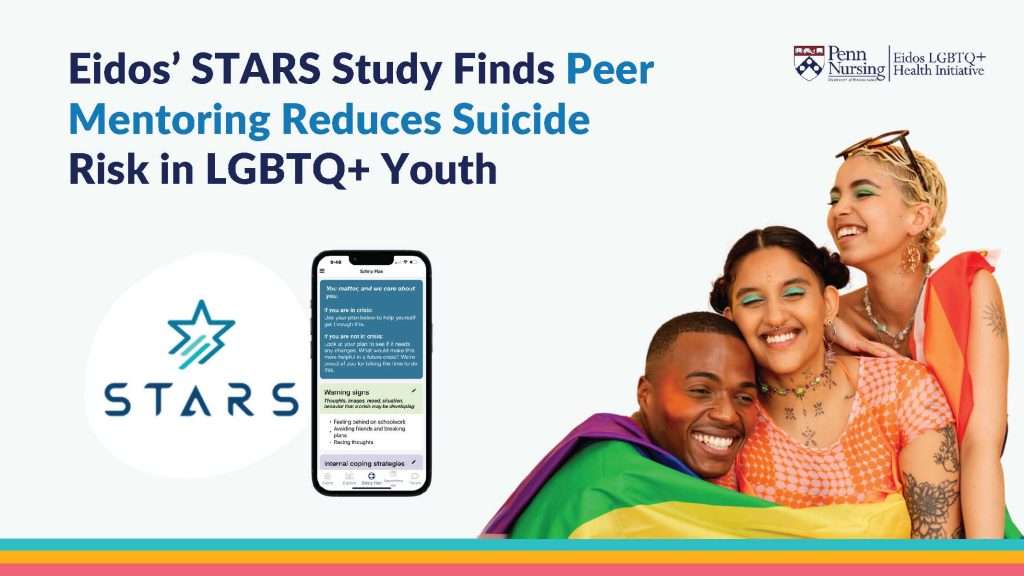STARS: A Digital Health Intervention for Reducing Suicide in LGBTQ+ Youth

The Challenge
In the US, suicide is the third leading cause of death for emerging adults (ages 18-24). LGBTQ+ young people face significantly higher suicide risk compared to their non-LGBTQ+ peers. Research shows that 11%-20% of sexual and gender minorities (SGM) have attempted suicide in their lifetime, compared to just 4% of heterosexual adults. Stigma, discrimination, and social isolation fuel this disparity, making many young people feel like they don’t belong or that they’re a burden on others.
While traditional suicide prevention efforts often focus on professional mental health support, many SGM youth at risk of suicide turn to peers instead of seeking formal care—often due to stigma or barriers to access. This highlights peer relationships as a crucial yet often overlooked factor in suicide prevention. Research backs up that strong social connections can help protect against suicide risk, even in the face of discrimination. To truly address this crisis, we need community-driven interventions that equip peers with the tools to provide life-saving support.
The Work
To address this gap, Eidos researchers, with funding from Penn Medicine’s INSPIRE Center, developed and tested Supporting Transitions to Adulthood and Reducing Suicide (STARS), a digital health intervention with a peer mentoring component designed to enhance social support, build coping skills, and reinforce positive mental health strategies among SGM youth. The STARS intervention was designed based on best practices for suicide prevention in LGBTQ+ populations, incorporating four key elements:
- Targeting social support: Creating affirming connections between LGBTQ+ youth and trained peer mentors.
- Skill-based peer mentoring: Providing structured interventions beyond emotional support, focusing on practical coping strategies.
- LGBTQ+ affirming approach: Ensuring culturally competent mentorship rooted in the lived experiences of SGM youth.
- Emphasizing safety planning: Helping participants develop and commit to using personal safety plans, reinforced with motivational interviewing techniques to encourage adherence.
Peer Mentors (PMs) were trained by licensed mental health professionals and provided a structured manual to guide their interactions. The study employed a mixed-methods approach, combining surveys and qualitative interviews to assess changes in participants’ mental health outcomes over time.
The Results
The STARS intervention demonstrated promising outcomes, reinforcing the potential of peer mentoring as a suicide prevention strategy for LGBTQ+ youth. Key findings included:
- Increased social connectedness: Participants reported feeling more supported and less isolated after engaging with their peer mentors.
- Improved coping strategies: Many youth adopted healthier ways to manage stress, reducing their reliance on harmful coping mechanisms.
- Lowered stigma around help-seeking: Participants became more open to seeking professional mental health care, an essential factor in long-term suicide prevention.
These findings highlight the potential impact of incorporating peer mentoring in mental health interventions to address suicide risk among LGBTQ+ youth. By incorporating structured, evidence-based mentorship, STARS fosters meaningful connections, builds resilience, and offers a scalable, community-driven model for supporting LGBTQ+ youth experiencing suicidal ideation.
As mental health systems seek more inclusive and effective solutions, interventions like STARS demonstrate how peer-driven support can break down barriers to care and advance health equity—paving the way for a future where everyone has access to the support they need to thrive.